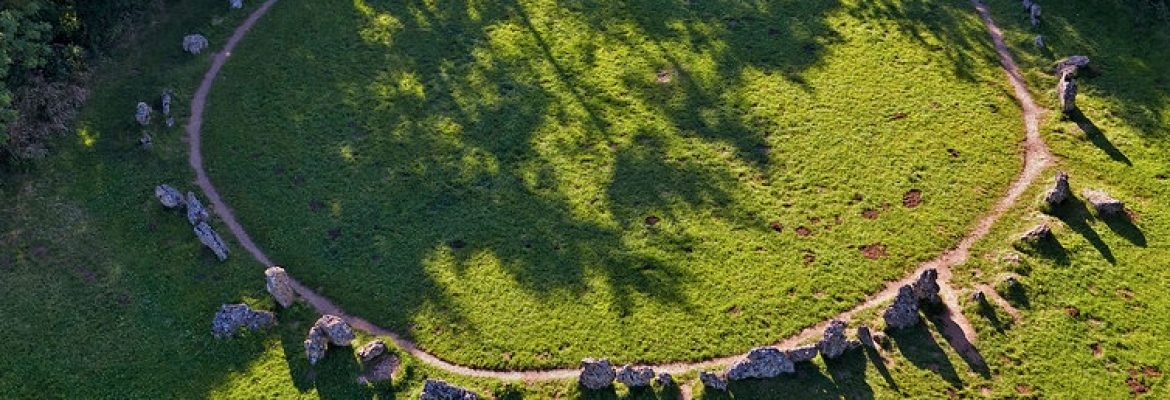The Rollright Stones
The Rollright Stones is an ancient site located on the Oxfordshire & Warwickshire border in England. The complex consists of three main elements, The King’s Men stone circle, the King Stone, and the Whispering Knights. This complex of megalithic monuments lies on the boundary between Oxfordshire and Warwickshire, on the edge of the Cotswold hills. They span nearly 2000 years of Neolithic and Bronze age development and each site dates from a different period.
The oldest, the Whispering Knights dolmen, is early Neolithic, circa 3,800-3,500 BC, the King’s Men stone circle is late Neolithic, circa 2,500 BC; and the King Stone is early to middle Bronze Age, circa 1,500 BC. The Stones are made of natural boulders of Jurassic oolitic limestone which forms the bulk of the Cotswold hills. This stone has been used extensively in the region for building everything from churches and houses to stone walls. The boulders used to construct the Rollright Stones were probably collected from within 500m of the site.
The origin of the name ‘Rollright’ is somewhat uncertain. One interpretation is that it is derived from the Old English ‘Hrolla’+ ‘landriht’, the land-right or property of Hrolla. Old English is the earliest historical form of the English language brought to England by Anglo-Saxon settlers probably in the mid 5th century. Another theory is that it is derived from an even older Celtic language ‘rod’ + ‘land’ + ‘ricc’ meaning the ‘ricc’ (groove, gorge or steep valley) by the ‘rodland’ (wheel arena) – i.e. the stone circle.


